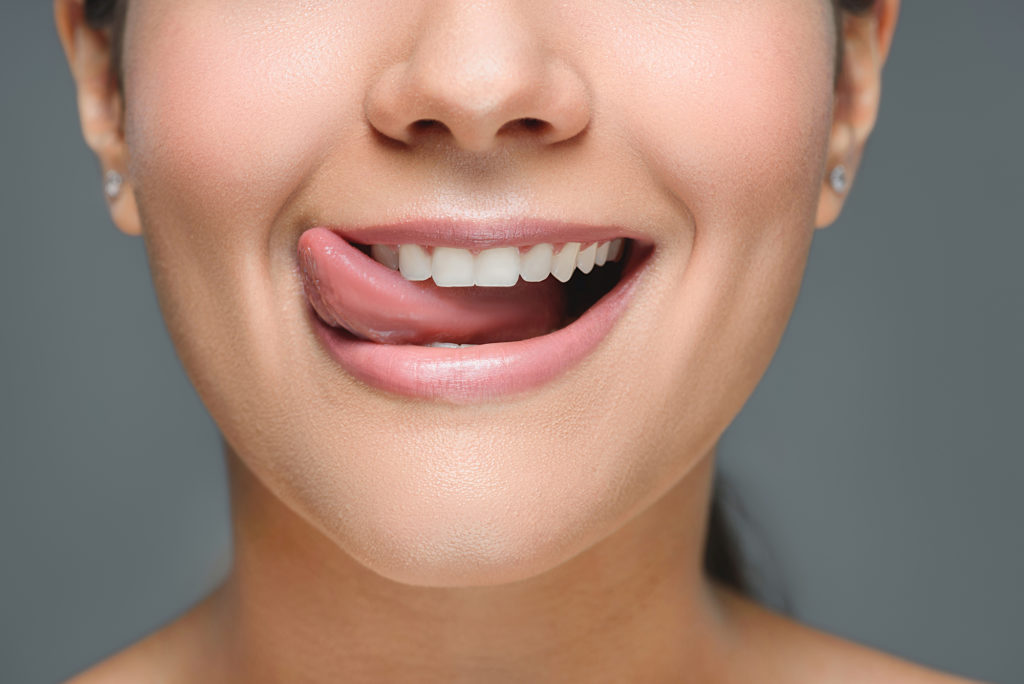What’s The Best Way to Floss
We all know we should floss, but it can be tough. Part of this is because flossing can feel like an extra task in an already busy day, but it...

We don’t often think much about it, but our tongues are actually an amazing piece of our anatomy. You use your tongue to help you chew, swallow, speak, taste, and more.
In addition, your tongue can tell you a lot. Your tongue should look pink, and you should be able to see the small bumps covering its surface. If your tongue looks different, it may be saying something about your overall health.
This can indicate a few different health concerns, including oral thrush. It could also be Leukoplakia which is white patches caused by increased cell growth, and on its own is not dangerous but may be a precursor to oral cancers. Other times white patches or lines can be the result of a benign condition.
A white film can simply be caused by a buildup of debris and natural bacteria. Similarly, a black and hairy tongue may be the result of excessive papillae growth (the natural bumps on your tongue) and bacterial. Both of these situations can be addressed by cleaning your tongue daily.
There are several concerns for which a red tongue is an indicator. These can range from vitamin deficiencies to dangerous diseases such as Kawasaki disease and Scarlet fever. If you have a red tongue accompanied by a fever, see your doctor.
If you suspect a vitamin deficiency, it may not be as much of an emergency as these other conditions but can certainly impact your health. Folic acid deficiency can lead to birth defects if you plan to become pregnant, and vitamin B-12 deficiencies can cause tiredness and other symptoms. Again, sometimes redness on the tongue is harmless, but it may be a good idea to seek a professional opinion.
These symptoms can simply be a sign of biting your tongue or grinding your teeth. In other cases, they may indicate oral cancer. If these symptoms appear and persist for longer than a couple of weeks, get it checked, even if you are not experiencing pain.
You already know that maintaining good oral hygiene is essential to your dental as well as overall health. Keeping your tongue clean should be a part of that routine. Your tongue can be home to bacteria that cause tooth decay, gum disease, and bad breath. So keeping your tongue clean is just as important as your teeth.
Cleaning your tongue is surprisingly easy, although just rinsing with mouthwash doesn’t cut it. Because mouthwash only touches the surface, it affects the outer bacteria but does not get into the smaller spaces to kill and remove bacteria. Brushing or scrapping is necessary for effective cleaning.
You can simply use the toothbrush and paste you already have on hand. Every time you brush your teeth, remember to spend a little extra time brushing your tongue as well. Experts recommend brushing back and forth as well as side to side. Do not use too much pressure that you hurt or damage your tongue. Then, simply rinse with water of mouthwash as you normally would after brushing.
A tongue scraper is an inexpensive tool that can be used to clean your tongue instead of using your toothbrush. It may clean better than a toothbrush because instead of rubbing bacteria around the tongue, it works by pulling the debris off the tongue from back to front. It is simple to use; you start at the back and work your way forward using a gentle scraping motion and rinsing the scraper between each pass. It can be easily added to your daily oral hygiene routine.
But does it work? The jury is still out, but some studies have shown that tongue scraping might improve bad breath and remove more bacteria. It might be worth giving tongue scraping a try!
When you get your twice-annual dental checkup, we check your tongue and the rest of your mouth for signs of health problems. Schedule your checkup today!